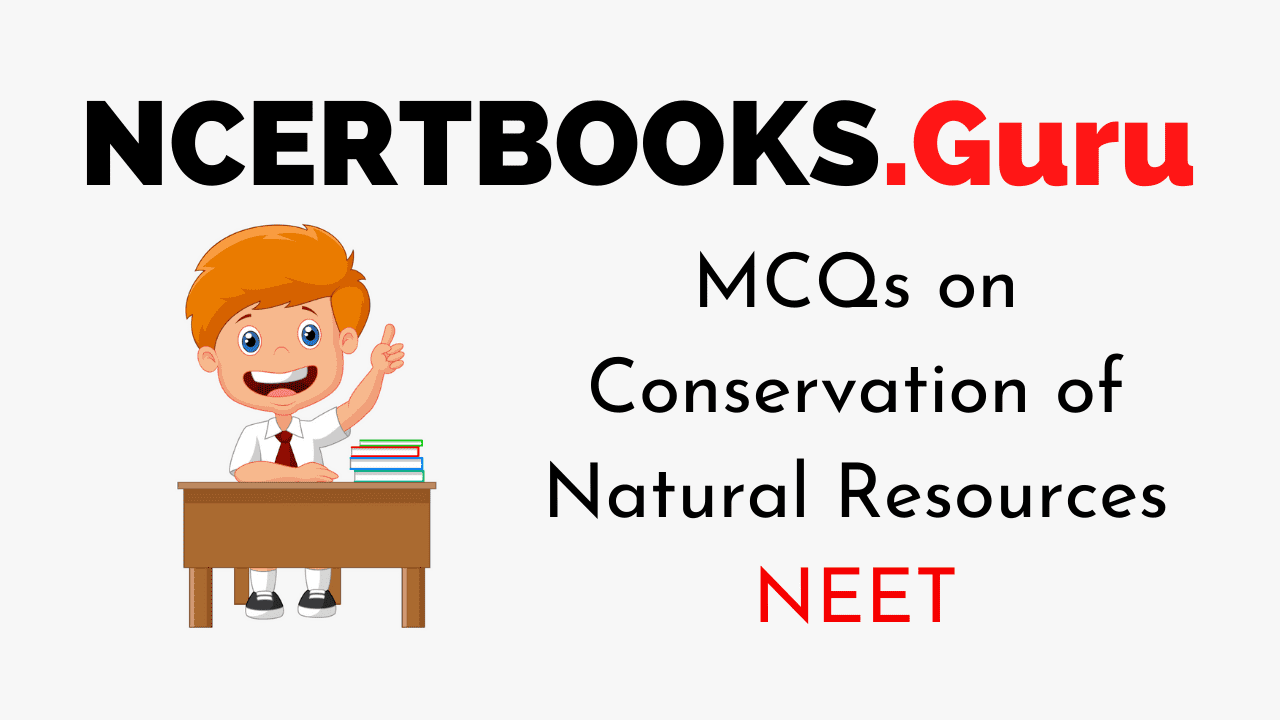NEET Biology is the scoring paper in the medical entrance examination. Here, you will discover the NEET Biology MCQ Questions for all Concepts as per the latest syllabus. Practice more on a regular basis with these NEET Biology objective questions on air pollution and improve your subject knowledge & problem-solving skills along with time management. NEET Biology Conservation of Natural Resources Multiple Choice Questions make you feel confident in answering the question in the exam & increases your scores to high.
MCQs on Conservation of Natural Resources
1. Which one represents the regulative function of forests?
(a) storage and release of gases
(b) production of essential oils
(c) production of wood
(d) conservation of water and soil
Answer
Answer: (a)
Answer: (a)
2. In many industries, Tin, steel and copper are being substituted by
(a) ceramics
(b) high-strength glass fibers
(c) ceramics
(d) all of these
Answer
Answer: (d)
3. Demersal fish is obtained from
(a) open sea
(b) sea bottom
(c) estuaries
(d) lakes
Answer
Answer: (b)
4. Deforestation may reduce the chances of
(a) frequent landslides
(b) erosion of surface soil
(c) rainfall
(d) frequent cyclones
Answer
Answer: (c)
5. Soil conservation is the process where
(a) soil is aerated
(b) soil is protected against loss
(c) sterile soil is converted to fertile soil
(d) soil erosion is allowed
Answer
Answer: (b)
6. Which of the following is an anti-forest conservation activity
(a) preservation of wild animals
(b) preservation of fires
(c) clear felling
(d) economy in lumbering
Answer
Answer: (c)
7. Soil erosion can be prevented by
(a) Afforestation
(b) overgrazing
(c) increasing birds population
(d) removal of vegetation
Answer
Answer: (a)
8. Energy produced by hydel-power plant is
(a) Non-polluting and non-renewable
(b) Polluting and non-renewable
(c) Non-polluting and renewable
(d) Polluting and renewable
Answer
Answer: (c)
9. This is an example of of non-polluting renewable type of energy
(a) tidal
(b) wind
(c) solar
(d) all of these
Answer
Answer: (d)
10. This group consists of non-renewable organic resources
(a) Water, air and minerals
(b) natural gas, oil and coal
(c) wood, water and natural pastures
(d) sand, air and clay
Answer
Answer: (b)
